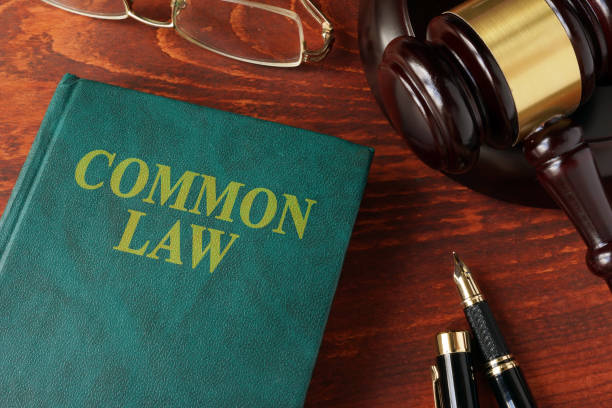ALL >> Legal >> View Article
Does Common Law Still Exist In The Uk?

The constitution of the United Kingdom reflects a traditional and historical origin. Unusually, it has an unwritten constitution. The sources of the constitution are an amalgamation of the statute and un-written laws. There are three separate legal systems in the UK. It has each one for England and Wales, North Ireland, and Scotland. In this way, the United Kingdom is divided into three jurisdictions. And the legal system of England and Wales is based on the common law. Therefore, common law is still relevant to the UK.
What Is the Common Law?
There are three systems that govern the UK law; Legislation, The European Union convention on Human rights, and the common law. The common law is a derivation of custom and precedent. A precedent is a rule established in a previous legal case. The rule is assumed to be cogent and that, in the future, it will apply ...
... to similar cases without going to the court. So, the courts apply rules that are already declared in previous cases.
In the UK, the common law established in the 12th century. It established through the legal reforms by King Henry II. They are applied to Wales since 1536. It was stated as the common law because like the rule of law it was applied to everyone throughout the country. Formerly, the common law was overseen in the king’s court. It was Lord chancellor’s office that comprised of the legislative, judiciary, and executive powers. But now, Lord chancellor has no judicial role but, it is Lord chief justice, who heads the judicial system.
Now, the common law does not hold the sole power. The rules can be replaced with new ones through the legislation. This process is called ‘trump’.
The common law differs from the statutes, as they are formed in the parliament. Also, the common law applies to all people, but statutes can be made for particular people.
Common-Law Vs Civil Law:
Common law is an extensive set of legal statutes and is created by the legislators. It instructs the people about which cases can go in the court, what conditions are liable to cases, what are the procedures and punishments etc. The civil law ascribes civil code to evaluate each case according to details and evidence. Judiciary make legislative decisions on the basis of the testimonies and circumstances. The laws persist in establishing equity and erasing the business. The judges are, therefore, considered as the investigators; those who probe a case. The role of lawyers is limited to civil laws. The central duty of lawyers is to aptly guide the clients.
Whereas, the common law is derived from the opinions and interpretations of judicial authorities. However, the common law also believes in maintaining equity. The role of lawyers is more significant than the civil law system. Here, the lawyers serve as advocates. They make thorough presentations.
Solicitors in Manchester:
It is always recommended for you to consult a solicitor. Because the solicitors know or can have to research if there is a relevant statute law for any given case condition. You can consult lots of solicitors around England and Wales.
Conclusion:
In a nutshell, the United Kingdom, along other countries like India, Canada, and the United States has common law. It is the body of the system that:
1- Does not have a written constitution.
2- Binding Judicial decisions. The legislation can overturn a common law.
3- Freedom of contract.
4- Differs from civil law.
Must Read: Is Law A Good Career In UK?
My name is Phoebe Lambert and i am an experienced social media manager in Nextgen Media Ltd and guides you about social media, media management related topics.
Add Comment
Legal Articles
1. Uk Certificate Attestation Services In Dubai, Uae: A Complete GuideAuthor: Prime Global
2. How To Choose The Best Drug Crime Lawyer In San Fernando ?
Author: Naderi Law Office
3. Dubai Eviction Rules Explained: When Landlords Can Remove Tenants For Rent Default And Sale Of Property
Author: The Law Reporters
4. Mio & Partners Guide To Dubai Police Smart App Updates
Author: MIO & Partners
5. Alberta Invites More Than 1,000 Invitations With Four Aaip Draws
Author: Atul
6. All You Need To Know About Chapter 13 Bankruptcy In San Diego
Author: Recovery Law Group
7. Attestation Services In Dubai, United Arab Emirates: A Practical Guide To Document Verification
Author: Prime Global
8. Commercial Law Compliance Checklist For Dubai Businesses
Author: Klay Legal
9. Ircc Sets New Canada Express Entry Record With The Largest Category Based Draw
Author: Atul
10. Top Property Lawyer Law Firm In Pune – Propdox
Author: PROPDOX
11. Work In The Uk With Uk Lottery Visa 2026
Author: Atul
12. Birth Certificate Attestation In Dubai, Uae: Process, Purpose, And Practical Guidance
Author: Prime Global;
13. How Criminal Defense Attorneys Protect Your Rights After An Arrest?
Author: Naderi Law Office
14. Ontario Pnp Latest Draw: First Invitation Round Of 2026
Author: Atul
15. Housing Disrepair Birmingham – Legal Support For Repairs & Compensation
Author: Housing Disrepair Birmingham










